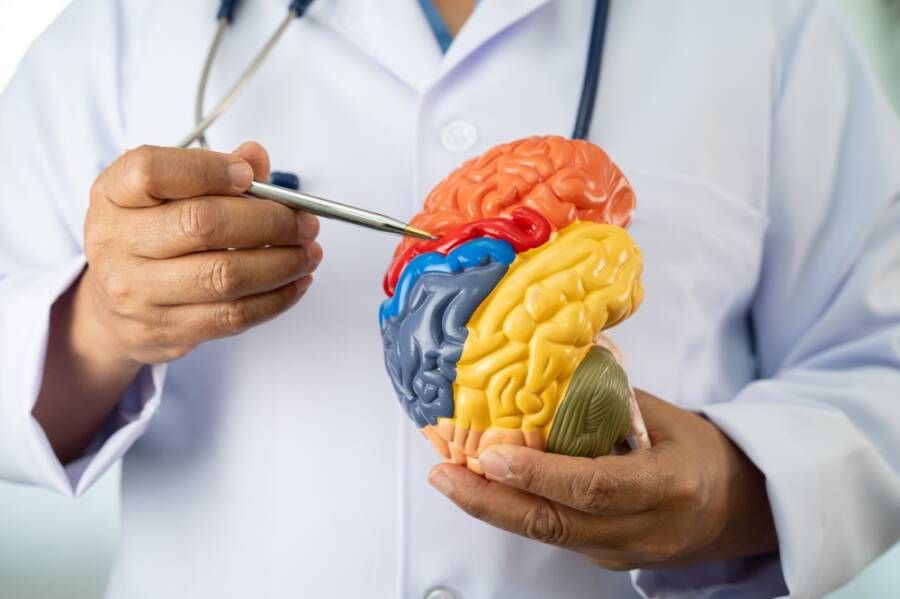You sure read many brain facts until this point, but did you know about these? Let’s take a look!
Years ago, neuroscience wasn’t exactly a popular choice among scientists, but once people started talking about it, it became a leading topic. It sparked public interest, and scientists created podcasts and wrote books to share their knowledge with the public. Some even suggest that neuroscience holds the key to understanding wealth, the existence of the soul, and the differences between men and women.
While brain science has not yet responded to humanity’s most popular questions, like whether God is real or where memories go when we die, it still has the potential to give us plenty of insight regarding our lives on Earth.
The brain is the most complex and incredible organ in the human body, but despite everything we know, there are still many myths regarding how it works. Are left-handed individuals more intelligent? Do ladies and gentlemen have different brains? These are all questions we try to answer in today’s article, so if you’re curious to know more, keep reading, because you don’t want to miss these brain facts:

True: ladies and gentlemen have different brains
I bet Carrie Bradshaw would’ve loved to know about this brain fact. After all, her entire career revolved around writing about men, women, intimacy, and relationships. All jokes aside, it’s true that women’s brains are a tad smaller than men’s, even after adjusting for their overall size. Quick disclaimer: the size of the brain has nothing to do with how intelligent you are. For example, Albert Einstein had a smaller-than-average brain and was one of the greatest scientists our world has ever had.
Researchers say men and women have different brain volumes in particular areas, perhaps due to the roles played by genes and hormones in the organ’s development. For example, gentlemen have a larger volume in the occipital region, while ladies have more volume in the prefrontal cortex.
This brain fact and the difference between female and male organs should be taken seriously because they could explain why we’re not equally vulnerable to specific mental issues. Believe it or not, men are more likely to suffer from substance abuse compared to women, who are more prone to being diagnosed with anxiety and depression.
…Let’s continue with these brain facts because your perception could be changed!
Myth: right-brained people are more creative
Did you know there’s no evidence that anyone is left-brained or right-brained? This topic has always sparked people’s interest, and researchers wanted to know more about it, so they conducted a study where over 1,000 children and adults up to the age of 29 participated in brain imaging experiments. What’s interesting is that they didn’t find any evidence supporting this belief.
It’s not true that one side is stronger than the other. People, regardless of their career or talents, use their left and right sides depending on the task they’re working on.
So, it’s now clear that we can’t say right-brained people are more creative. However, experts say the left side of the brain is indeed creative, as it’s the one that tells stories and fills in the blanks when we don’t have enough information. Pretty great, right?
…And speaking of the left and right parts, here’s another brain fact for you!

True: the bran is split in half
As you already know, this incredible organ in our heads consists of two hemispheres resembling mirror images, connected by fibers known as the corpus callosum. The right hemisphere controls the left side of the body, while the left hemisphere controls the right side.
Research on “split-brain” patients conducted since the 1960s has shown that the functions of the two brain hemispheres are different from one another. This group of patients had their corpus callosum removed as a treatment for epilepsy. For instance, early research revealed that most of our language processing is possible thanks to the left side. Undoubtedly, the corpus callosum allows these two parts to collaborate.
The right side detected information and humor in speech. In case people suffer from strokes on the left side, their right one will quickly compensate by picking up language functions.
…The next brain fact is a popular myth! Keep reading!
Myth: men have exquisite and better spatial awareness
For decades, we all believed that our powerful men have better results on tests of “spatial cognition,” usually a test recognizing a shape that’s been rotated. Experts say that the ability demonstrated on that test seems to be a good indicator of improved performance in math and science.
However, our perception was forever changed thanks to the 2020 study of students at the University of Limerick, Ireland, which found that women and men approach the task differently but have results just as impressive. It was about time, don’t you think?
Myth (maybe): left-hand people are smarter
Well, well, well, here’s another brain fact that sparked people’s interest. It doesn’t matter if you’re a lefty or a righty, because everyone uses their hands for different tasks. For instance, if I write a note for my son, I always use my right hand, but if I’m in a conference room and I have to hold a mic, I always use my left hand.
Some research suggests there might be differences between how we process information based on what hand we use most, but there’s not enough evidence to draw a conclusion. Speaking of proof, there’s some evidence suggesting that individuals who aren’t consistent with their handedness might have more flexible thinking skills. However, large meta-analyses categorizing people as “left-handed” or “right-handed” showed no significant differences in IQ between the two groups.

Myth: your brain stores memories
…These brain facts are sprinkled with myths and we have a couple more left to debunk!
Your computer is probably loaded with files that you can immediately pull up when needed. While it might seem like your brain operates the same way, it’s not true. This amazing organ is smart enough to reconstruct a memory when called upon, but it starts with the big picture and then keeps filling in the details. That’s why it takes a while to remember exactly how a specific situation went.
But here’s the interesting part: each time you ask your brain to remember an event, the reconstruction process will suffer modifications, which means that your memory could be slightly altered.
While we need to trust our memories, it’s important to keep in mind that they might not serve the entire truth. Some research even suggests that if you can immediately produce a memory and feel confident, you have a higher chance of being accurate.
Myth: depression is linked to a lack of serotonin
As you probably know, Prozac hit the market in 1987 and was quickly followed by Zoloft in 1992. The newer medicine was marketed as a remedy for treating a “chemical imbalance” in the brain, making way for other selective serotonin reuptake inhibitors (SSRIs) to treat anxiety and depression. But here’s the thing: the ideal serotonin levels an individual should have is still a mystery. Another catch is that people who suffer from anxiety or depression don’t always have abnormal serotonin levels.
In his book called “Great Myths of the Brain,” neuroscientist Christian Jarrett mentioned that boosting someone’s serotonin levels with L-tryptophan, for example, doesn’t help ease depression. Moreover, he also added that lowering an individual’s serotonin won’t make them feel worse.
So, here’s the big question: are these popular antidepressants more effective than a placebo? There’s research saying that these drugs are more likely to treat a brain issue rather than a serotonin deficiency, but we need more information to have a strong conclusion.
These were all the brain facts we had up our sleeves for today. If you’d like to read Part. II, drop a comment below, and we’ll take care of it sooner than you think. And if you know any other brain facts that we didn’t include in our list, let us know in the comments below! Until next time, here’s another fantastic post you don’t want to miss: 10 Genetic Quirks You Didn’t Know You Got From Your Parents














